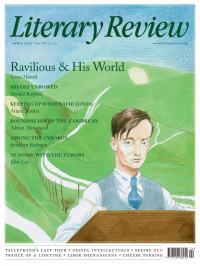David Annand
End of the Road
Let Go My Hand
By Edward Docx
Picador 416pp £16.99
Being a rootless, precariously employed exemplar of the contemporary (with no office to call my own), I read much of the second half of Edward Docx’s new novel at a shared desk space that I occasionally frequent. I say much of the second half because I chose to stop at page 389, a lump rising in my throat, sensing that it would be bad form to be openly weeping while the others worked on their search engine optimisation. I crept from the room with all the dignity I could muster, my lower lip trembling. We’re not supposed to react like this, us exemplars of the contemporary, at least not those of us of the hepcat, ennui-stricken, aesthetically exhausted sort. We’re supposed to be able to see through the realist novel, with its ingratiating entreaties to our sympathy, its reactionary privileging of bourgeois subjectivity, its naive blinkeredness to its own manifest artifice. But every now and then, even us hepcats have to put up our hands and say, sometimes they just hit you, straight in the heart, these conventional realist narratives, and all you can do is submit.
Let Go My Hand takes the form of a four-day, lads-only European road trip, with all the bad driving, beautiful backdrops and boozing in the back seat you would expect. Only this road trip’s destination is Dignitas in Zurich, where paterfamilias Larry Lasker may or may not go

Sign Up to our newsletter
Receive free articles, highlights from the archive, news, details of prizes, and much more.@Lit_Review
Follow Literary Review on Twitter
Twitter Feed
How to ruin a film - a short guide by @TWHodgkinson:
Thomas W Hodgkinson - There Was No Sorcerer
Thomas W Hodgkinson: There Was No Sorcerer - Box Office Poison: Hollywood’s Story in a Century of Flops by Tim Robey
literaryreview.co.uk
How to ruin a film - a short guide by @TWHodgkinson:
Thomas W Hodgkinson - There Was No Sorcerer
Thomas W Hodgkinson: There Was No Sorcerer - Box Office Poison: Hollywood’s Story in a Century of Flops by Tim Robey
literaryreview.co.uk
Give the gift that lasts all year with a subscription to Literary Review. Save up to 35% on the cover price when you visit us at https://literaryreview.co.uk/subscribe and enter the code 'XMAS24'